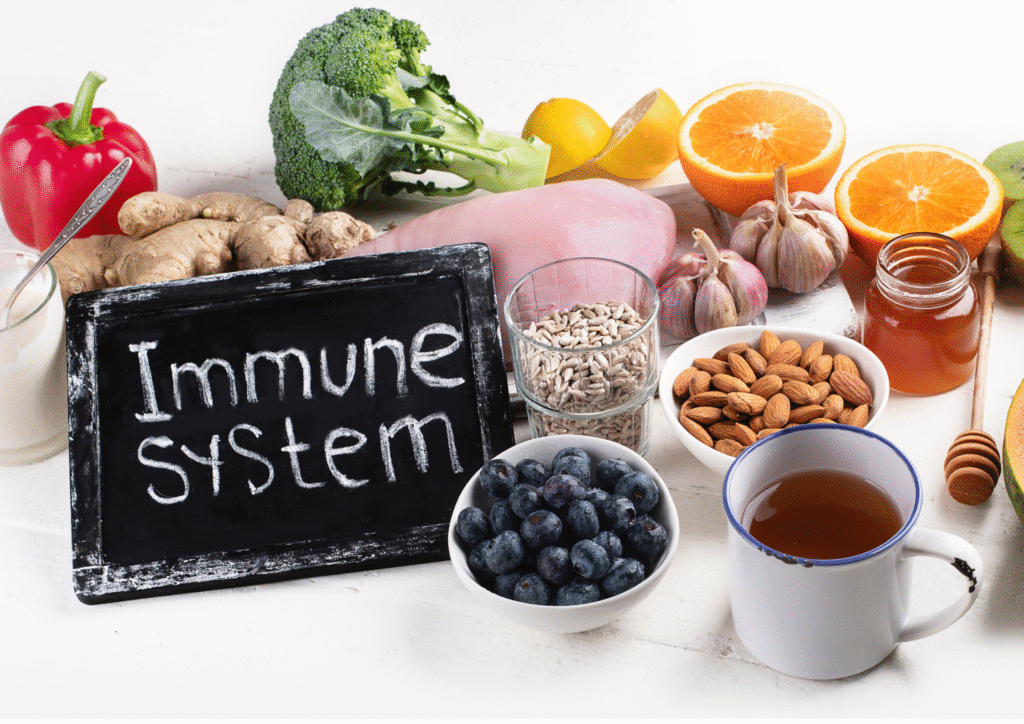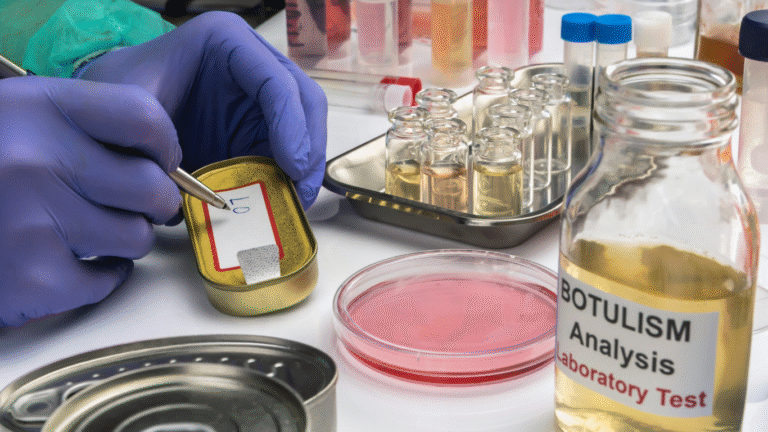
Discover why trendy “immune boosting” supplements often fail to deliver, and what genuinely strengthens your body’s defenses.
What if your deepest fear is getting sick, especially after diligently washing your hands and trying to eat healthy? Yet, you’re constantly tempted by ads promising “immune boosting” pills or shots that seem like an easy fix. If you keep reading, you’ll discover why those products rarely help, and what actually, scientifically, strengthens your immune system.
Why debunking Immune Boosting myths matters more than most people realize. Because your health—and your wallet—deserve more than catchy trendy labels and fancy, expensive bottles. Falling for marketing hype can leave you vulnerable.
However, some argue that these supplements can’t hurt and might even help, so why not try them? This perspective often leads to a casual approach to health. On the other hand, leading medical experts firmly warn that overusing “immune boosters” is not only ineffective. It could dangerously fuel a false sense of security, causing you to neglect proven health strategies, or even lead to unexpected harm.
1. The Immune System Is Not a Gas Pedal
A healthy immune system is characterized by balance and efficiency, not by being constantly “boosted” or overstimulated. Think of it more like a finely tuned instrument than a car engine you want to redline.
Harvard Health Publishing clearly explains that there is no credible scientific evidence that supplements can “enhance” immunity in healthy adults who are already well-nourished. [1] Dr. Suzanne Cassel, an immunologist at Cedars-Sinai, further emphasizes that immunity requires delicate balance. She warns that an immune system that is too strong or overactive can actually trigger negative responses, such as allergies or debilitating autoimmune reactions. [2]
“You actually don’t want your immune system to be stronger, you want it to be balanced.” — Dr. Suzanne Cassel, Immunologist, Cedars-Sinai [2]
As a result, chasing a more powerful immune system through supplements can significantly backfire. Instead of better health, you might trigger unwanted inflammation or even more serious immune dysregulation.
2. Supplements vs. Deficiency: Know the Difference
The fundamental difference lies between supplementing a deficiency and trying to “boost” an already healthy system. Supplements only provide a real benefit when they are correcting genuine nutritional gaps.
Harvard Health again notes that vitamins and minerals provide health benefits primarily to those who are deficient. For individuals who are already well-fed and consuming a balanced diet, taking extra supplements offers no added protection against illness. [1] The National Institutes of Health (NIH) Office of Dietary Supplements further confirms this: adequate intake of vitamins and minerals is crucial for immune function. However, consuming amounts above the recommended daily allowances in healthy individuals does not confer additional immune benefits. [3] On the other hand, certain populations, such as young children, pregnant individuals, or older adults, may have specific dietary needs or deficiencies. These groups may indeed benefit from targeted supplementation, but always under medical guidance.
3. Popular “Immune Boosters” Don’t Do What They Claim
Many of the trendy “immune booster” supplements that flood the market simply do not hold up under scientific scrutiny. Their claims are often based on outdated science or marketing spin.
Vitamin C, for example, gained immense fame through Nobel laureate Linus Pauling. However, extensive clinical trials have consistently shown that high doses of Vitamin C do not prevent the common cold. While some studies suggest it might slightly shorten the duration or severity of a cold, it’s far from a “cure” or a preventive measure. [4] Probiotics are another prime example. While beneficial for gut health in some contexts, they are not broadly proven to directly “boost” overall immunity in healthy adults. [1, 5] Similarly, expensive IV drips promising “immune boosts” and various herbal detox blends widely lack credible scientific evidence to support their purported immune-enhancing effects. [6] This explainer on Debunking the Myth of “Immune Boosting” Products shows why clear, unbiased evidence matters significantly more than catchy, yet often empty, marketing.
4. Quick Fixes Can Be Harmful
The allure of a quick fix is strong, but taking unregulated “immune-boosting” products is not a harmless gamble. There are genuine risks involved.
A major concern is that dietary supplements are not as rigorously regulated by the U.S. Food and Drug Administration (FDA) as pharmaceutical drugs. This means their quality, purity, and even the accuracy of their stated dosing can vary greatly from product to product. [7] Furthermore, overingesting certain vitamins or minerals can lead to nutrient toxicity. For example, excessive intake of fat-soluble vitamins can build up in the body, potentially causing organ damage or harming kidney function over time. [8] Immunologist Daniel Davis, a professor at the University of Manchester, warns that persistently overstimulating your immune system with unnecessary substances could even trigger autoimmune responses, where your body mistakenly attacks its own healthy tissues. [9] As a result, taking more supplements isn’t safer. In fact, it can lead to uncomfortable, or even serious, adverse side effects.
5. What Actually Supports Your Immunity
Rather than relying on unproven supplements, medical experts universally agree on a set of safe, proven actions that genuinely support and balance your immune system. These are not quick fixes, but consistent, foundational habits.
Vaccines are arguably your most powerful tool. They work by training your immune system to recognize and effectively fight known pathogens before you’re exposed to them, offering targeted protection. [10] Beyond that, consistent lifestyle habits are absolutely essential. This includes getting adequate, quality sleep, engaging in regular physical exercise, effectively managing chronic stress, and maintaining a well-balanced diet rich in fruits, vegetables, and whole foods. [1, 10] Lastly, basic hygiene remains your first line of defense. Simple yet effective practices like washing your hands regularly with soap and water are paramount in preventing the spread of infections. [1, 6] However, these proven methods require time and consistency. They simply don’t come with flashy claims or instant gratification.
Dark Humor Moment
I once took a giant vitamin C gummy after watching a terrifying flu video . , . and promptly got heartburn so bad I thought I was having a different kind of health crisis. Wellness fail #101.
Why This Matters to You
Believing the widespread “immune-boosting” marketing can have several detrimental consequences for your health and finances:
- Over-spending: You end up wasting money on expensive pills that offer no real benefit for a healthy immune system.
- Avoiding Proven Strategies: You might mistakenly prioritize supplements over scientifically proven methods like getting vaccinated or practicing good hygiene.
- Exposing Yourself to Side Effects: You risk uncomfortable, or even dangerous, adverse reactions from unregulated or over-dosed products.
Instead, choose what works: a balanced diet, sufficient rest, and consistent hygiene. These strategies are supported by robust scientific evidence and your own body’s natural capabilities.
What You Can Do Today
Shift your focus from hype to health. Here’s a practical plan:
- Skip Multi-Ingredient Immune Supplements: Save your money and avoid potentially harmful ingredients.
- Focus on Whole-Food Nutrition and Sleep: Prioritize a diverse diet rich in fruits, vegetables, and lean proteins, and aim for 7-9 hours of quality sleep nightly.
- Keep Up with Vaccines and Good Hand Hygiene: Stay current on recommended vaccinations and practice consistent handwashing.
- Consult Your Doctor: Always speak with your healthcare provider before starting any new supplement regimen, especially if you are pregnant, have underlying health conditions, or are taking other medications.
Conclusion & Your Next Step
The myth of “immune boosting” sells a dream of magic pills and instant protection. But ultimately, it’s a marketing trick that preys on our desire for quick fixes. Your immune system needs consistent balance and support, not sudden blasts of unproven compounds. To truly strengthen your body’s defenses, focus on real, foundational health habits that genuinely work.
Your Next Step: Swap out that “immune booster” bottle for something far more effective. Prioritize getting better sleep tonight. Ensure your next meal is packed with fruits and vegetables. And schedule your next recommended vaccine. Notice how you feel after a month of consistent, common-sense care. There are no empty promises here, just tangible improvements built through steady, science-backed habits—not shortcuts or supplements.
Sources
- Harvard Health Publishing. “Can you boost your immune system?” Published April 6, 2020. https://www.health.harvard.edu/staying-healthy/can-you-boost-your-immune-system
- Cedars-Sinai. “Myth or Fact? Can You ‘Boost’ Your Immune System?” Published January 13, 2021. https://www.cedars-sinai.org/blog/can-you-boost-immune-system.html
- National Institutes of Health (NIH), Office of Dietary Supplements. “Dietary Supplements: What You Need to Know.” Updated March 2, 2022. https://ods.od.nih.gov/factsheets/DietarySupplements-Consumer/
- Cochrane Library. “Vitamin C for preventing and treating the common cold.” Published January 31, 2013. https://www.cochranelibrary.com/cdsr/doi/10.1002/14651858.CD000980.pub4/full
- National Center for Complementary and Integrative Health (NCCIH). “Probiotics: What You Need To Know.” Published August 2019. https://www.nccih.nih.gov/health/probiotics-what-you-need-to-know
- U.S. Food and Drug Administration (FDA). “Dietary Supplements.” Accessed July 17, 2025. https://www.fda.gov/food/dietary-supplements
- Mayo Clinic. “Dietary supplements: What you need to know.” Published September 23, 2023. https://www.mayoclinic.org/healthy-lifestyle/consumer-health/in-depth/dietary-supplements/art-20044894
- The Guardian. “The immune system isn’t like a battery – you can’t just ‘boost’ it. Here’s why.” (Features quote from Professor Daniel M. Davis). Published February 23, 2021. https://www.theguardian.com/lifeandstyle/2021/feb/23/the-immune-system-isnt-like-a-battery-you-cant-just-boost-it-heres-why
- Centers for Disease Control and Prevention (CDC). “Vaccine Basics.” Updated March 20, 2023. https://www.cdc.gov/vaccines/basics/index.html
- World Health Organization (WHO). “Healthy diet.” Accessed July 17, 2025. https://www.who.int/news-room/fact-sheets/detail/healthy-diet




